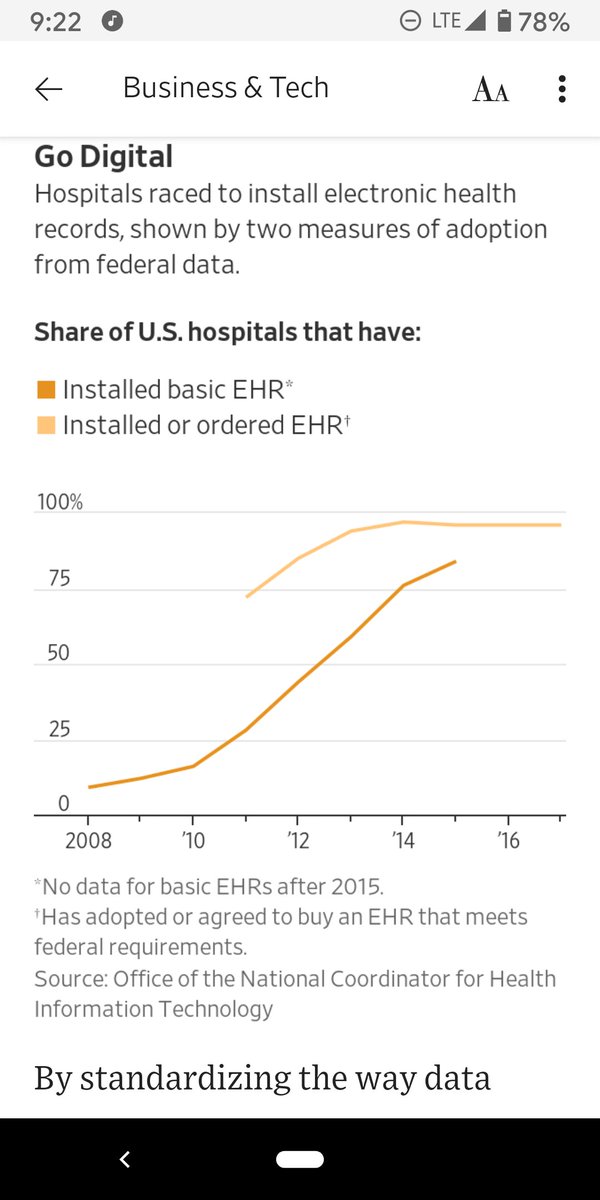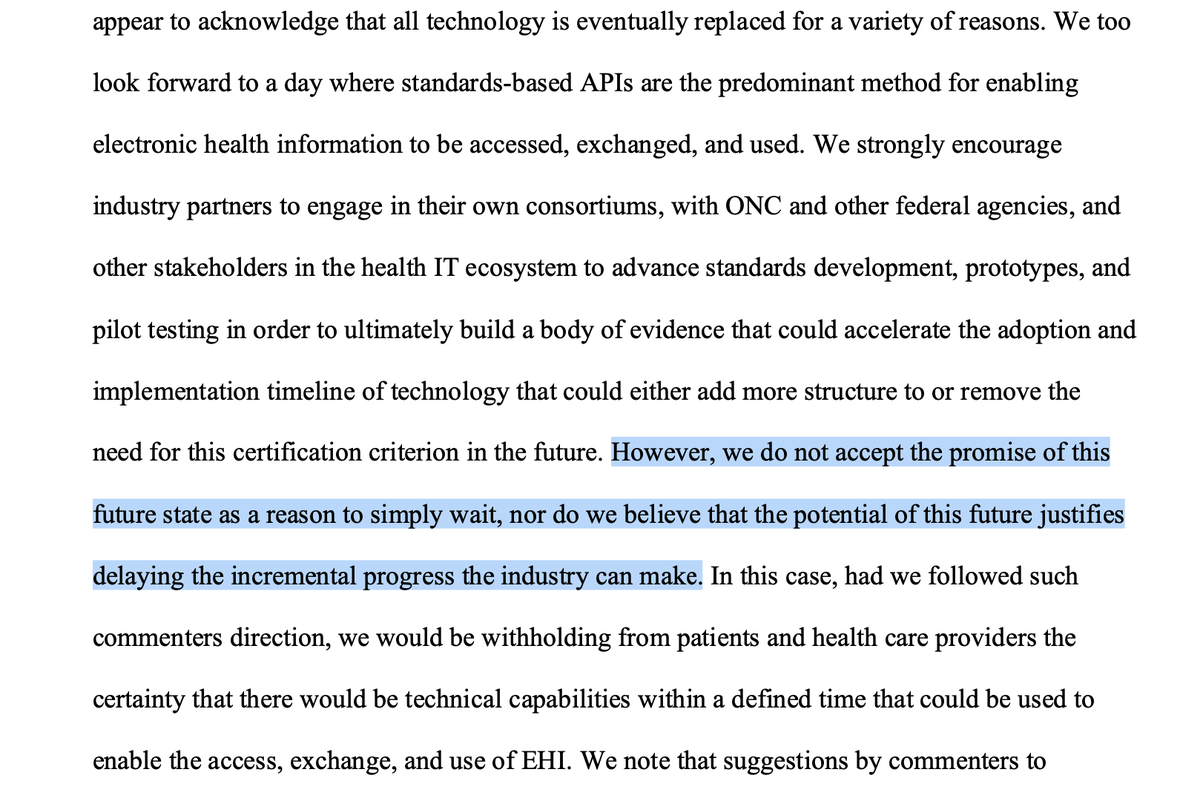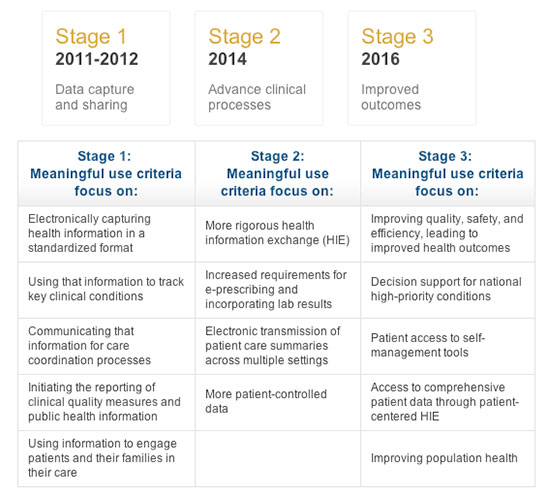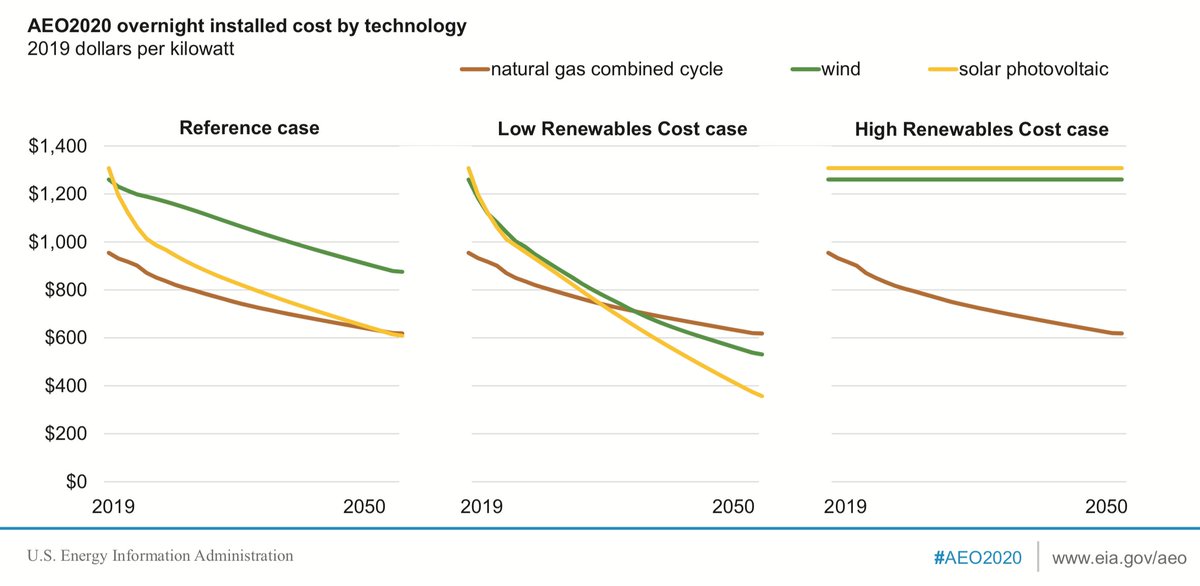During my time in the federal government (2009-2014) we pushed hard on adoption of electronic health records, and adoption rose rapidly
wsj.com/articles/embar…

And nurses and pharmacists (and patients) appreciate not having to try to read our handwriting.
This was seen as a unique opportunity to improve broken healthcare system
Every constituency has their priorities, and in committee, it's easy to get to a list of requirements which seem "individually rational, collectively insane"
*Quality improvement to save lives (eg BP control)?
*Immunizations?
*Electronic prescribing?
*Medication safety?
*Reporting to public health? (C/f #COVID19)
*Sharing data between doctors?
*Patient access to their records?
We tried to stage it all
Hospitals are much safer places to be now than they were a decade ago
The digital data revolution has accelerated all sorts of clinical research, and is set to explode in utility with machine learning
There's more data sharing
I've thought a lot about why.
*"Regulatory Compliance"<<<Business model
*Business rewards volume not quality, hoarding not sharing
*The medical record became a tool for "management" to control staff
newyorker.com/magazine/2018/…
Between acquiescing to the capabilities and ability to change for the status quo incumbents, vs the risk of pushing the system faster than it can go, and potentially harming patients and frontline workers
This could be a turning point
Allowing reporting of safety events
Allowing third party apps to access "walled gardens"
Allowing patients access to their health data
Allowing community physicians awareness of their pts hospitalizations
blogs.gartner.com/wes_rishel/201…
API app ecosystem
consumer transparency
payer "blue button"
privacy enforcement
payment reform
forbes.com/sites/davechas…
@SeemaCMS and @donrucker just followed through on that threat.
"we do not accept the promise of [a] future state as a reason to simply wait"

We will likely have to address the gaps in our current regulation of privacy pertaining to patient data.
Let's not wait.
@amalec on #InformationBlocking
cms.gov/newsroom/press…
#infoblocking
#curesruleonc
#curesrulecms
#interop
#21CCFinalRules
*How @HHSGov balances consumer access vs privacy
*Whether economics of FHIR APIs extended to pop-level use cases via “bulk” access
*If consumers could access all data elements without burden
"HHS delivered on all 3"






